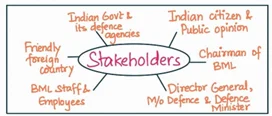Previous PostRajesh Kumar is a senior public servant with a reputation of honesty and forthrightness, currently posted in the Finance Ministry as Head of the Budget Division. His department is presently busy organizing the budgetary support to the states, four of which are due to go to the polls within the financial year. This year’s annual budget had allotted Rs. 8300 crores for the National Housing Scheme (NHS), a centrally sponsored social housing scheme for the weaker sections of society. `775 crores have been drawn for the NHS till June. The Ministry of Commerce had long been pursuing a case for setting up a Special Economic Zone (SEZ) in a southern state to boost exports. After two years of detailed discussions between the center and state, the Union Cabinet approved the project in August. The process was initiated to acquire the necessary land. Eighteen months ago, a leading Public Sector Unit (PSU) had projected the need for setting up a large natural gas processing plant in a northern state for the regional gas grid. The required land is already in possession of the PSU. The gas grid is an essential component of the national energy security strategy. After three rounds of global bidding, the project was allotted to an MNC, M/s XYZ Hydrocarbons. The first tranche of payment to the MNC is scheduled to be made in December. The Finance Ministry was asked for a timely allocation of an additional Rs. 6000 crores for these two developmental projects. It was decided to recommend re-appropriation of this entire amount from the NHS allocation. The file was forwarded to the Budget Department for their comments and further processing. On studying the case file, Rajesh Kumar realized that this re-appropriation may cause inordinate delay in the execution of NHS, a project much publicized in the rallies of senior politicians. Correspondingly, non-availability of finances would cause financial loss in the SEZ and national embarrassment due to delayed payment in an international project. Rajesh Kumar discussed the matter with his seniors. He was conveyed that this politically sensitive situation needs to be processed immediately. Rajesh Kumar realized that diversion of funds from the NHS could raise difficult questions for the government in the Parliament. Discuss the following with reference to this case: (a) Ethical issues involved in re-appropriation of funds from a welfare project to the developmental projects. (b) Given the need for proper utilization of public funds, discuss the options available to Rajesh Kumar. Is resigning a worthy option?
